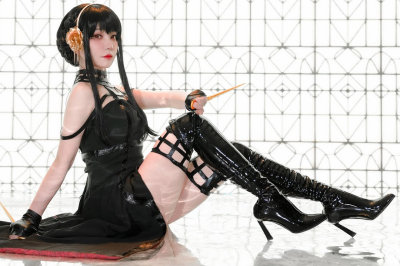THE CALENDAR GIRLS - Q&A with Helen Mirren, Julie Walters, Penelope WIlton, Celia Imrie, John Alderton, Geraldine James, Tim Firth and director Nigel Cole
Movie Interview by Reece De Ville
PHASE9 chats to most of the stars of CALENDAR GIRLS including Helen Mirren, Julie Walters, Penelope Wilton, Celia Imrie, John Alderton, Geraldine James, scriptwriter Tim Firth and director Nigel Cole at the London Press Conference.
Helen, did the fact that you had previously appeared nude give you more confidence for CALENDAR GIRLS?
HELEN MIRREN: Yes, I had a bit of a head start. Some of the women had done it before. Julie had.
JULIE WALTERS: I had.
HELEN MIRREN: And, some hadn't. But everyone was so charmed and taken by the script it was a very different kind of way of taking your clothes off. There was a huge amount of mutual support from the cast. We all were there for each other.
Did you feel like a leader what with having the most experience of nudity?
HELEN MIRREN: Not really, as we all supported each other with those scenes, but in acting terms it was a really good film to make.
Do you feel the pressure of CALENDAR GIRLS being talked about as the next big British hit?
NIGEL COLE: It's scary that stuff. I mean you're really not responsible for that kind of talk, your good selves are! It doesn't put any extra pressure on one. All I will say that from the very first day I got involved with this project, people would start to smile whenever I mentioned the subject of the film. There's something about this story that grabs people and gets their interest and makes them smile and makes them feel good. I don't feel that we feel responsible for that, or that we're riding on their wave, but the world has taken those 11 women to their hearts and we're seeing the benefit of that.
Did you have to recreate the nerve that the women had that night to take their clothes off or did it come naturally?
JULIE WALTERS: Yes, it was completely natural. There was no recreation needed! Everyone was so supportive and I had Linda Bassett standing next to me, who helped. And it was my best side (Julie is photographed from the back)!
Did you have any apprehension or thoughts about taking your clothes off from the film?
JULIE WALTERS: Sort of petering towards 'oh my god!' really. But no, it was fine.
PENELOPE WILTON: We all looked after each other!
Were the original calendar girls happy with your portrayal of them?
HELEN MIRREN: Yes actually. We were very, very lucky. The wonderful women kind of gave it to us with their wonderful story, and although they were present on the set, they never said 'oh we would never have done it that way' and 'oh that was wrong'. They generously gave their story to us and let us take it where we took it. I was very inspired by Tricia, the character I'm playing, and our performances were totally down to the generosity of the original women.
Did any of you go to the gym to get into shape for the film?
HELEN MIRREN: We probably should have done! I don't think any of us did.
CELIA IMRIE: Doesn't Penelope have great legs though?
PENELOPE WALTERS: Celia and I are a great double act. She's the top and I'm the bottom half!
Did any of you want to join the WI after making the movie?
PENELOPE WILTON: Oh yes, and there are a new generation of women that still want to know about jam making and other activities that are disappearing. I was really fascinated by that.
Was there a lot of artistic licence taken between what we see on screen and what the actual events were?
NIGEL COLE: Well, a few. But you have to make some compromises to make a well-structured film that works in two hours. I don't think that there's a single thing in the film that you can't say wasn't directly inspired by something that happened. But when I first met the calendar girls, I went for tea typically, and was still there at 1 o'clock in the morning! There were so many stories, and there was perhaps too much for the film. We didn't have to invent anything for the film; we were inspired by their stories. Some of the original women chose not to be represented or have their stories filmed, for perfectly understandable reasons, so there is a kind of a blurring of the characters outside of the two main roles played by Helen and Julie. I think the women had had enough; they'd spent two years in the media spotlight after all.
Did any of the ladies have any objections to the script?
TIM FIRTH: Yes, they thought that having a talk on broccoli was pushing it a bit, but then they said 'well, actually last week we had a talk on the history of the tea towel'. So, as is the way in Hollywood, we included the tea towel scene.
Did you have any feedback from the family of John as to how you played their loved one?
JOHN ALDERTON: Yes, but I don't take my clothes off in the film! I take my hair off, but that's it! I went up to Yorkshire and spent time with the family and got the impression of John from them, and although I haven't seen the film, I'm told by the family that I treated the character with some respect.
What was it like dealing with so many established, experienced actors, and did they gang up on you in anyway?
NIGEL COLE: Yes!
JULIE WALTERS: We ganged up with him!
NIGEL COLE: The scariest thing as a director is going into a shoot with actors who are inexperienced and don't know what they are doing. And that really puts the pressure on you. I didn't have that problem once on this shoot. It just made my life easier to know I had a fantastic cast. It's what you dream of, and it makes it easy for you.
HELE MIRREN: We were incredibly lucky to have Nigel as he treated us with respect. An amused respect if that's the right way to put it! Not remotely kind of grovelling or ingratiating which would have been nauseating. He was always inventive, and was never intimidated by us. This is very much a film about women, but it is a film made by two men, Tim and Nigel. I'm personally very grateful to those two men!
NIGEL COLE: I was so emotionally knocked sideways when shooting as my wife had just given birth, so I had to keep explaining why I was breaking down in tears between scenes! It wasn't anything the actors had done!
How easy was it to get Jay Leno to recreate his role?
NIGEL COLE: Easy! He's done like a thousand shows a year, but he remembered the real women in gross detail and was blown away by them. And when we approached him he immediately said 'God, I remember those women! Yes of course, I'd be delighted to be involved'. He said 'let's do it for real' so we filmed after the show with that night's audience. The hardest people to get in the film were Anthrax! They were overawed - it was soooo funny! Seeing these tattooed rock stars being overawed by these British actresses was great!
Do you think there are sections of this film, along with the overall humour and idea of older women creating this calendar, that won't appeal to an American audience?
HELEN MIRREN: Let's not forget that it's an American company that made this film. Buena Vista financed this film and I think we underestimate the American film industry in this country. It looks like a British film, but we're all here thanks to the beautiful marketing by an American company.
NIGEL COLE: When Harbour Pictures got the rights to make this film, there was some concern that the film would be commercialised or made softer, but if anything we were under pressure to make this film a more intelligent film, a more powerful film, so it was more like making a film for Channel 4 than it was for a major Hollywood studio.
PENELOPE WILTON: And if it makes filmmakers look at older actresses, then I'm all for that.



